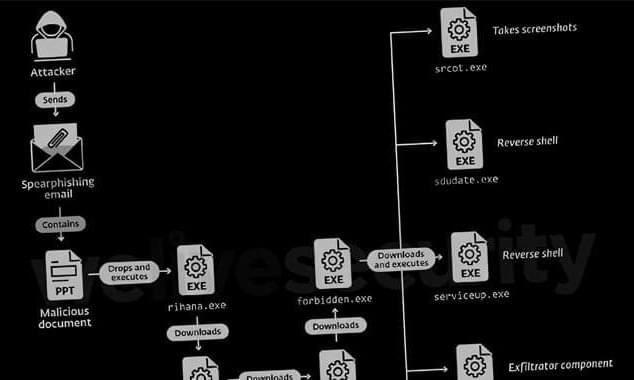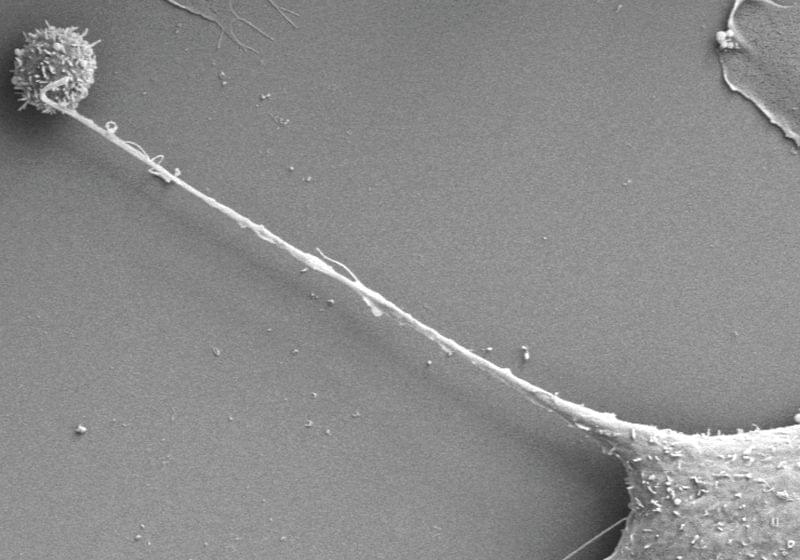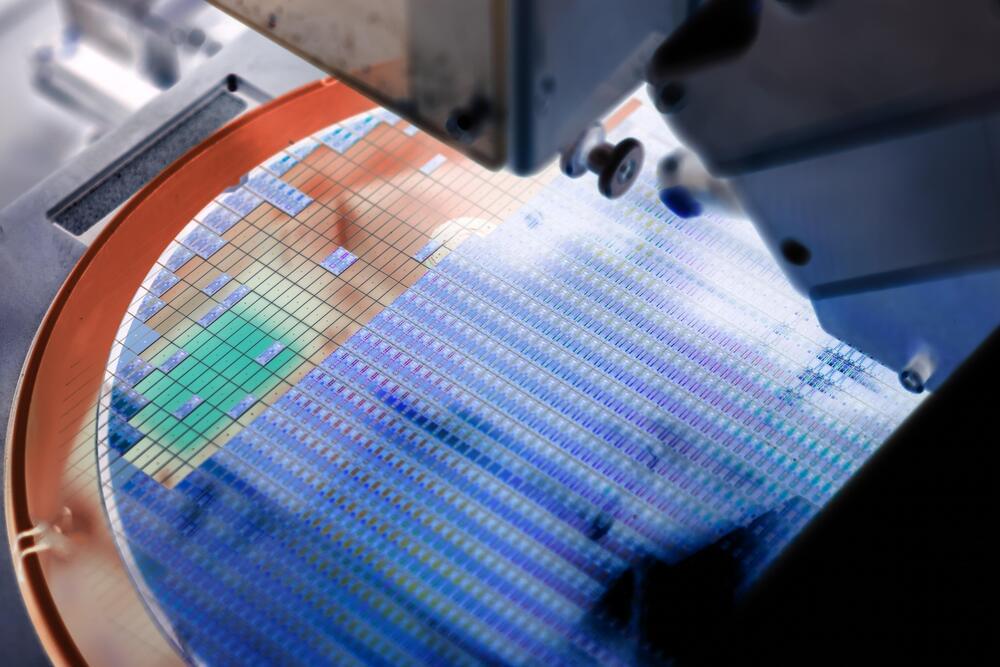Implants that Musk says could allow paralysed people to walk already tested on a macaque and a pig.
Get the latest international news and world events from around the world.
China Unveils ‘World’s Largest’ Quadruped Military Robot
China has introduced what it claims to be the world’s largest electrically-powered quadruped robot to assist the military on logistics and reconnaissance missions.
With a “yak-like appearance,” the four-legged robot can reportedly carry up to 352 pounds (160 kilograms) of payload and run at six miles (10 kilometers) per hour.
The platform’s structure is designed to withstand challenging off-grid military missions and conquer a wide variety of terrain, including cliffs, trenches, grasslands, fields, deserts, snow, and muddy roads.




Cancer Cell Nanotubes Hijack Mitochondria from Immune Sentinels
Cancer cells send out nanotubes to suck mitochondria from immune cells, finds a November 18 study in Nature Nanotechnology. The pilfered organelles allow the cancer cells to replenish their power while weakening T cells—a finding that could lead to new avenues for assailing tumors.
“It’s surprising that the transfer of mitochondria happened between different cell types, intriguingly between immune cells and cancer cells,” writes cancer biologist Ming Tan of China Medical University in Taiwan, who was not involved in this study, in an email to The Scientist. While researchers have observed mitochondrial transfer between cells before, most cases occurred between two cells of the same type. “Moreover, the mitochondrial transfer appears to have a significant impact on tumor cells escaping from immune surveillance,” Tan adds. “This is exciting because [of] its potential therapeutic implications.”
See “Nanotubes Link Immune Cells”.
The Killer Egg: What Is So Great About the AH-6?
Your email address will not be published. Required fields are marked
Comment.


Pfizer CEO says omicron vaccine will be ready in March
Pfizer CEO Albert Bourla on Monday said a vaccine that targets the omicron variant of Covid will be ready in March, and the company’s already begun manufacturing the doses.
“This vaccine will be ready in March,” Bourla told CNBC’s “Squawk Box.” “We [are] already starting manufacturing some of these quantities at risk.”
Bourla said the vaccine will also target the other variants that are circulating. He said it is still not clear whether or not an omicron vaccine is needed or how it would be used, but Pfizer will have some doses ready since some countries want it ready as soon as possible.

Atom Computing Raises $60M Series B to Build Second-Generation Quantum Computing Systems
BERKELEY, Calif. 0, Jan. 20, 2022 — Atom Computing, the creators of the first quantum computer made of nuclear-spin qubits from optically-trapped neutral atoms, today announced closure of a $60M Series B round. Third Point Ventures led the round, followed by Primer Movers Lab and insiders including Innovation Endeavors, Venrock and Prelude Ventures. Following the completion of their first 100-qubit quantum computing system with world-record 40 second coherence times, Atom Computing will use this new investment to build their second-generation quantum computing systems and commercialize the technology.
“Atom Computing designed and built our first-generation machine, Phoenix 0, in less than two years and our team was the fastest to deliver a 100-qubit system,” said Rob Hays 0, CEO and President, Atom Computing. “We gained valuable learnings from the system and have proven the technology. The investment announced today accelerates the commercialization opportunities and we look forward to bringing this to market.”
With this new level of investment, the company will turn its focus to developing much larger systems that are required to run commercial use-cases with paradigm-shifting compute performance.